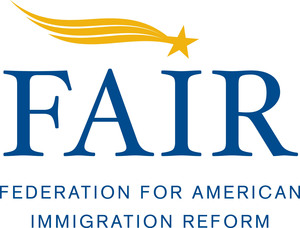
Shows interpretation of law should be corrected
WASHINGTON, Oct. 28, 2025 /PRNewswire/ -- The federal government has petitioned the U.S. Supreme Court to review two appellate court decisions striking down President Trump's executive order limiting constitutional birthright citizenship to children of U.S. citizens and lawful permanent residents. Yesterday, the Federation for American Immigration Reform (FAIR), in a brief joined by Landmark Legal Foundation, urged the Court to take up the cases.
In its brief, FAIR focuses on the true meaning of an historic Supreme Court case: United States v. Wong Kim Ark, decided in 1898. In that case, the Supreme Court held that, because—and only because—the parents of a man of Chinese ancestry were legally residing in the United States when he was born here, he was a U.S. citizen at birth under the Fourteenth Amendment.
In showing that the Court's requirement of lawful permission to reside was part of its holding, FAIR sharply parts ways with the view taken by plaintiffs' attorneys, activist courts, and many academic commentators that the Fourteenth Amendment makes anyone born in the United States whose parents are not diplomats or members of an invading army a citizen. On the contrary, the true reading of the Fourteenth Amendment, explicated in Wong Kim Ark, is that, to be a citizen at birth under the Fourteenth Amendment, one must be born in the United States to parents who, at the time, had permission to reside in the United States. This rule excludes the children of both illegal aliens and tourists from constitutional birthright citizenship, since neither class of aliens has permission to reside here.
Which interpretation is right is clearly an issue of such importance that the Court must resolve it. As the brief puts it:
This Court should grant certiorari to correct a glaring, widespread legal error, committed by both courts below, about the meaning of one of this Court's central historical precedents. This Court should recognize that it remains bound by this precedent as properly understood, having no strong grounds to overturn it, and accordingly rule for petitioners.
"This holding has been sleeping in the law books, in a case largely mischaracterized in law schools and by academics, for 127 years," said Christopher J. Hajec, deputy general counsel of FAIR. "Yet logic shows that it is there and still binding on the Supreme Court. We hope the Court interprets its prior case rightly, grants review, and upholds Trump's executive order."
The cases are Trump v. Washington, No. 25-364, and Trump v. Barbara, 25-365 (Supreme Court).
Contact: Hayley Hill | [email protected]
SOURCE Federation for American Immigration Reform (FAIR)






Share this article